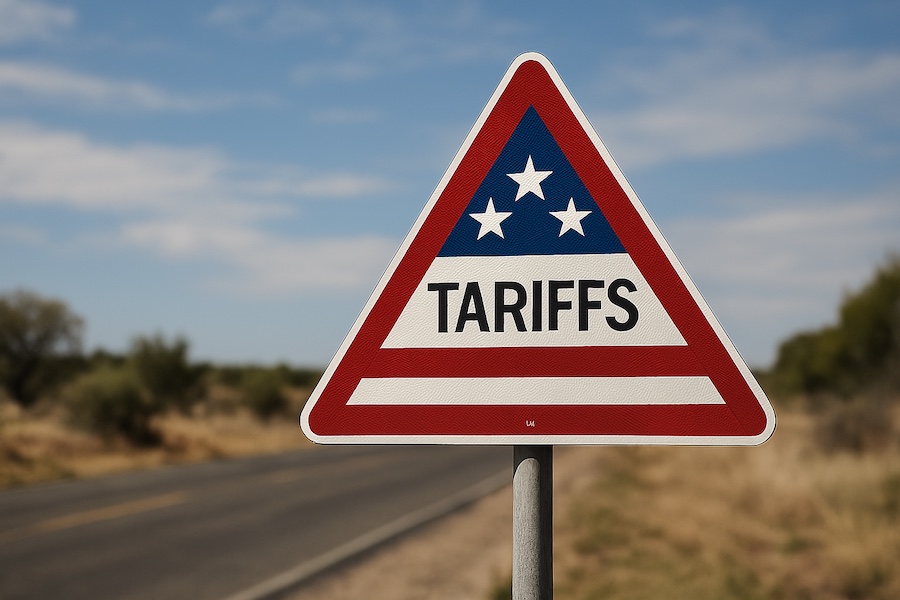Europe
President Trump's tariffs will hit textile countries hard

Impact on the Global Textile Industry
The textile sector, heavily reliant on international supply chains, is poised to experience substantial repercussions from these tariffs:
Bangladesh and Sri Lanka: Bangladesh's garment exports to the U.S. are now subject to a 37% tariff, threatening an industry that constitutes over 80% of the nation's export earnings and employs approximately 4 million workers. Similarly, Sri Lanka faces a 44% tariff on its $1.9 billion garment export industry, endangering 300,000 jobs. Both countries are urgently seeking governmental interventions to mitigate potential order cancellations and job losses.
China and Vietnam: China, a dominant player in textile manufacturing, confronts an additional 34% tariff, elevating its total tariff rate to 54%. Vietnam, another key supplier, faces a 46% tariff. These elevated duties are likely to disrupt supply chains and increase production costs for U.S. apparel companies.
India: In contrast, India faces a comparatively lower 26% tariff, which may render its textile exports more competitive relative to other Asian producers. This scenario could potentially attract U.S. retailers seeking alternative sourcing options.
The European Union, long a key supplier of premium textiles and fashion as well as nonwoven and technical textiles, is subject to a 20% tariff. European brands and manufacturers are voicing concern over cost increases, potential order losses, and supply chain delays—sparking calls for EU-level negotiations or retaliatory measures.
Warning from Euratex
The European Apparel and Textile Confederation, EURATEX, announced that the US is EU 5th most important trading partner, with total trade exceeding €9 billion. American customers enjoy high end fashion items, but also technical textiles coming from Europe. Adding a 20% duty will hamper that relationship.
EURATEX Director General Dirk Vantyghem warned against this tariff escalation: "This decision is like going back in time; it will lead to a loose-loose relationship within the global textile industry. EURATEX stands for free but fair trade, based on common rules which are respected by all; the EU and the US should lead by example, and promote high quality and sustainable textile products.”
The flat-rate 10 per cent tariffs will come into force as early as next Saturday. The higher tariffs for the EU and other trading partners will follow from Wednesday next week.
Domestic implications for the U.S. textile market
The imposition of these tariffs is anticipated to have several domestic consequences:
Increased consumer prices: With the U.S. importing nearly all of its clothing and footwear, predominantly from countries now facing higher tariffs, consumers may encounter significant price increases on apparel and related products.
Supply chain disruptions: Fashion brands and retailers, already navigating complex global supply networks, must reassess their sourcing strategies. The sudden imposition of tariffs may compel companies to seek new suppliers or renegotiate existing contracts, potentially leading to delays and increased operational costs.
Market volatility: The announcement has already prompted significant reactions in financial markets, with notable declines in stock indices. This volatility reflects broader economic concerns about the potential for escalating trade tensions and their impact on various industries, including textiles.
Strategic Considerations for Industry Stakeholders
In light of these developments, stakeholders within the textile industry should consider the following strategies:
Diversification of Supply Chains: Exploring alternative sourcing countries with lower tariff rates can help mitigate cost increases and reduce dependency on heavily tariffed regions
Domestic Production: Investing in domestic manufacturing capabilities may become more viable as imported goods become more expensive, aligning with the administration's goal of revitalizing U.S. industries.
Advocacy and Negotiation: Engaging with trade associations and policymakers to advocate for favorable trade terms or exemptions could be beneficial in navigating the evolving tariff landscape.
The textile industry stands at a critical juncture as it adapts to these sweeping trade policy changes. Proactive strategic planning and agility will be essential for companies aiming to maintain competitiveness and resilience in this new economic environment.
EU President von der Leyen stated on the announcement of universal tariffs by the US: "President Trump's announcement of universal tariffs on the whole world, including the EU, is a major blow to the world economy. I deeply regret this choice. Let's be clear-eyed about the immense consequences.
The global economy will massively suffer. Uncertainty will spiral and trigger the rise of further protectionism. The consequences will be dire for millions of people around the globe. Also for the most vulnerable countries, which are now subject to some of the highest US tariffs. The opposite of what we want to achieve. The tariffs will also hurt consumers around the world. It will be felt immediately. Millions of citizens will face higher grocery bills. Medication will cost more as well as transportation. Inflation will go up. And this is hurting in particular the most vulnerable citizens. All businesses – big and small – will suffer from day one. From greater uncertainty to the disruption of supply chains to burdensome bureaucracy. The cost of doing business with the United States will drastically increase."
